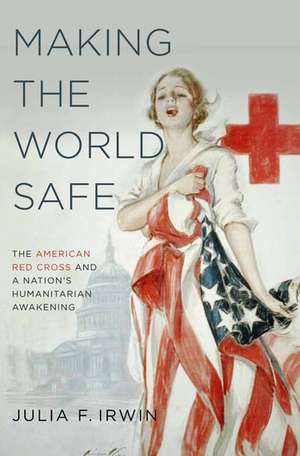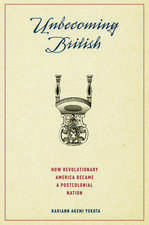Making the World Safe: The American Red Cross and a Nation's Humanitarian Awakening
Autor Julia F. Irwinen Limba Engleză Hardback – 23 mai 2013
| Toate formatele și edițiile | Preț | Express |
|---|---|---|
| Paperback (1) | 292.88 lei 31-37 zile | |
| Oxford University Press – 20 apr 2017 | 292.88 lei 31-37 zile | |
| Hardback (1) | 342.35 lei 31-37 zile | |
| Oxford University Press – 23 mai 2013 | 342.35 lei 31-37 zile |
Preț: 342.35 lei
Preț vechi: 387.93 lei
-12% Nou
Puncte Express: 514
Preț estimativ în valută:
65.51€ • 68.58$ • 54.20£
65.51€ • 68.58$ • 54.20£
Carte tipărită la comandă
Livrare economică 26 martie-01 aprilie
Preluare comenzi: 021 569.72.76
Specificații
ISBN-13: 9780199766406
ISBN-10: 0199766401
Pagini: 288
Ilustrații: 15 hts
Dimensiuni: 239 x 163 x 28 mm
Greutate: 0.52 kg
Editura: Oxford University Press
Colecția OUP USA
Locul publicării:New York, United States
ISBN-10: 0199766401
Pagini: 288
Ilustrații: 15 hts
Dimensiuni: 239 x 163 x 28 mm
Greutate: 0.52 kg
Editura: Oxford University Press
Colecția OUP USA
Locul publicării:New York, United States
Recenzii
[a] sharp, enlightening monograph ... Rather than a simple institutional history of a crucial actor Irwin has provided us a textured view of a critical agent in the evolution of humanitarianism in the United States that illuminates a diverse set of historical themes.
Notă biografică
Julia F. Irwin is Assistant Professor of History, University of South Florida
















